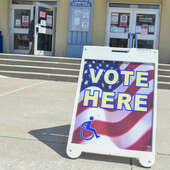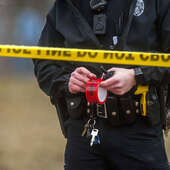Book Review: "Rough Sleepers: Dr. Jim O’Connell’s urgent mission to bring healing to homeless people"

“I think passive suicide is normal. It was for me. It’s not that you don’t want to live, but you don’t know how to live.”

This feeling of overwhelm, as described above, is experienced by many homeless people, according to Mike Jellison, a former Navy sailor and addict-turned recovery coach who became part of Dr. Jim McConnell’s Street Team, in Boston, Massachusetts.
McConnell, a compassionate Harvard Medical School graduate, deferred a prestigious fellowship to spend a year helping Boston’s homeless population, making it his life’s work. Rough Sleepers is a poignant, illuminating and frequently heartbreaking account of Dr. McConnell’s effort to deliver care to a neglected population.
The Street Team (two doctors, a nurse practitioner, two half-time psychiatrists, an assistant, and a “recovery coach”) focused on treating a group of 300 - 400 Rough Sleepers; those who sleep outside year-round, even during harsh Boston winters. McConnell originally thought of these people as “hardy survivors,” only to learn how fragile they really were, dying at 10 times the normal rate. In a photograph taken of 36 people, only one survived six years later.
Two-thirds of those treated were white males, all were adults and about half were between 18 - 44 years old. This depiction is similar to the homeless population in Southeast Missouri.
According to Tracy Kidder, the book’s author and winner of the Pulitzer Prize, “The modern era of American homelessness began in the 1980s when the size and visibility of the problem began to rise dramatically.” Prompted by the 1980 recession, homelessness was driven forward by shabby treatment of Vietnam veterans, the closing of mental health facilities, inequitable housing policies, a decline in jobs for unskilled laborers and deep cuts in programs for the poor by the Reagan administration.
In an interview with David Brinkley toward the end of his presidency, Ronald Reagan voiced what many people still believe to be true; homeless people simply don’t want to work and, “They make it their own choice for staying out there.”
In reality, few people living on the streets prefer this life. Many suffer from mental illness, drug addiction or abuse, which prevents them from maintaining the employment needed to acquire housing.
One Street Team doctor surmised that 90% of their patients had been afflicted by mental illness or substance abuse or both. That high number becomes easier to understand when at least 75% suffered physical and psychological effects of severe childhood trauma. The psychiatrist shared, “I never heard such stories of childhood trauma in my life. Neighbors and stepfathers who raped them. Mothers who beat them with pots. It gives you the impression of a feral society.”
Remember, most of these victims were males.
In the book, we get to know the unsheltered way of life, their fears, shattered dreams and hopes. As we read about them, they become meaningful to us, just as they did to McConnell and his team. We meet Harrison, a former professor who became homeless after suffering a psychotic break. And Tony, a former inmate living on the streets since his release. Tony called “Dr. Jim” and his Street Team “angels without wings.”
Many patients had complex problems that required time-consuming treatment, like tuberculosis, HIV or AIDS. One man had a hernia that hung below his knees. Many were beaten or dying, and some begged for help to find family members so they could say goodbye and make final amends. In one five-year count of ER visits, 119 Street Team patients appeared 18,384 times and only half survived.
Much of the treatment delivered by the Street Team had little to do with medicine and more to do with personal attention and respect. As explained by one Street Team member, “You just have to be there and be present and, if need be, stand with them in the darkness.”
Rough Sleepers is a gripping read for anyone interested in understanding the complexities of homelessness.
Elizabeth Shelton is the executive director of the United Way of Southeast Missouri. Shelton was elected chair of the Missouri Association of United Ways earlier this year. She will serve a two-year term in this role representing the 27 Missouri United Ways on the United Way Worldwide Council of States and at regional conferences.



























